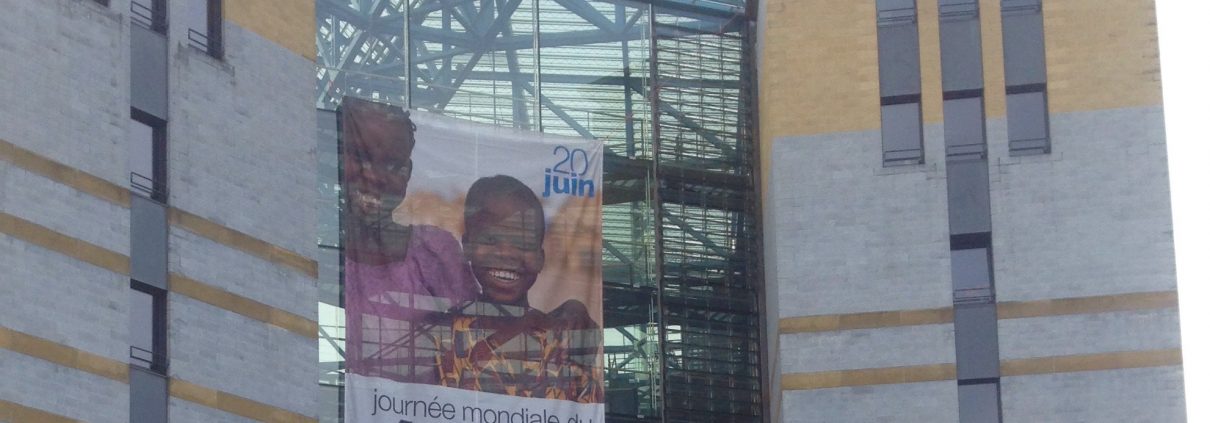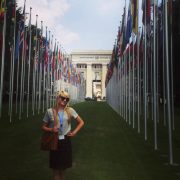Reflections of interning at UNHCR
By Katie Merrill, MSW ’16 & International Practice Pathway Fellow
It was already an emotional time for me in the office. I had just completed the last interviews I was going to complete for the study—speaking with employees about alcohol abuse issues within UNHCR (UN Office of the High Commissioner for Refugees). Although my time there was wrapping up, I still felt (then and now) deeply connected to the organization, to the efforts I poured into it, to the exciting and caring culture of the office, and to the staff members who had shared with me their intimate opinions over the phone for so many weeks. I did not feel like my work was over. I had just been called into a meeting with the head of the Staff Welfare Section and Staff Medical sections which ended lasting three hours, during which she listened intently to the findings of the study, about the depth and breadth of alcohol abuse issues affecting the staff of UNCHR—from alcohol-related car accidents to the perceived lack of support services offered (resulting in alcohol problems) to issues of cultural sensitivity and drinking culture.
I felt so honored to have the attention of this powerful woman and I felt so honored to be the messenger of such powerful messages. It was around this time too that I was told that the report I was putting together might be used within other UN entities outside of UNHCR. Who knows if that will happen or what policy changes will even result from the findings, but I had never felt so proud of any one project in my life. Upon starting in June, I had no idea how passionate I would come to feel about it, how many doors it would open for me occupationally and intellectually, how dramatically it would expand my scope of social work, and how much it would influence me in the international as well as mezzo practice directions.
I chose social work (with a direct practice focus) because I want in my career to be in the thick of things. I want to be with people who are suffering from the problems we discuss in class, I want to help them—with my words and care and direct actions. I decided against a PhD because I didn’t want to run studies so I could pass them around to other academics and never know for sure if a person’s life was actually improved because of them. And even if I did know that the research was helping people, what did it mean if I couldn’t experience it firsthand—if I couldn’t look into a person’s eyes and know that their life improved a little bit because I had been there? I still live for that, I still feel passionately drawn to the profession because of that feeling and am quite sure that will not change, but this project was instrumental in showing me what a powerful impact you can have (and actually feel) with a little research. I had the personal experience of hearing people’s intimate stories over the telephone, but synthesis of those interviews may lead to real changes in internal policy that may affect many people’s lives. It felt wow! I also felt grateful to be receiving the rich education I have been receiving at UCLA, which had prepared me for this internship in a number of ways I could not have expected.
When writing about the technique of Motivational Interviewing as a substance abuse intervention in my report, I applied both my firsthand experience practicing it at the recovery agency I interned with last year as well as the evidence for the effectiveness of the technique I had accumulated for a research paper I wrote in the spring. I never could have guessed that a few weeks later, an HR director at the UN would be asking to see that paper!
But I really cannot take credit for all this. The only reason I was in this office making those telephone calls was because my supervisor, a Croatian psychologist within the Staff Welfare Section, knew that this problem of staff alcohol abuse could be ignored no longer and thus made the effort to get me there and do the project justice. Despite powerful people at the top of the organization minimizing the severity of the alcohol abuse issue and attempting to dissuade him of making some dramatic steps to address it, he fought on because he is a good social worker and had no choice but to continue advocating for the people who needed advocating for. And that, I felt, was an easy cause to get behind.







